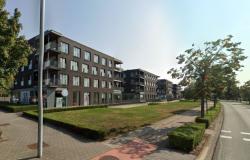KORTRIJK – The West Flanders University of Applied Sciences has officially joined RUN-EU 2.0, a European alliance of eight regional colleges and universities. The Flemish Government has now also awarded an additional subsidy (amount unknown) to Howest for further participation in this European partnership. “Thanks to the Flemish subsidy, our role within the alliance is not limited to the coming years, but it supports us in developing a real European long-term vision,” said a delighted general manager Frederik D’hulster.
“With the project subsidy we support Howest to function as a full research partner in the European network of universities and colleges and to actively participate in leveraged research projects,” reads the accompanying note from the Flemish Government. “At the same time, we provide a budget for incoming and outgoing temporary mobility. The subsidy also serves to explore and realize potential opportunities for valorization and quadrupel helix collaborations in Flanders and beyond. Finally, we want to encourage the sharing of expertise regarding alliances of European universities through learning networks.”
European alliances as a policy priority
The allocation of the Flemish subsidy for Howest does not come easily. Last year, colleges UC Leuven-Limburg, Hogent and Luca School of Arts also received support for their participation in a (different) alliance of European Universities. Supporting Flemish colleges and universities to participate in European partnerships is therefore included in the policy of the Flemish Government, with a focus on four priorities: qualitative research, internationalization, multidisciplinarity and economic and social valorization of knowledge.
Long-term cooperation
In concrete terms, the Flemish subsidy will contribute to the costs of Howest’s membership in RUN-EU 2.0, as well as to the capacity for the development of joint initiatives in the field of education, research and innovation. It also supports the objectives of the ‘European Universities’: anchoring the partnership in the curriculum, spreading innovation in content more quickly, better incorporating research into education and increasing international mobility and making it more creative.
“All this contributes to strengthening the role of our university in the innovation landscape,” says Frederik D’hulster, general manager of Howest. “We are already strongly committed to innovation with future-oriented courses, but thanks to partnerships like this we can reap the benefits also ensure that our (international) research flows better to Flemish companies and social organizations. In this sense, the subsidy we receive from the Flemish government is a great boost for this partnership in the long term. She also supports us in strengthening our region. This regional focus is present among all partners within RUN-EU 2.0. In the case of Howest, this translates into collaborations with West Flemish SMEs, start-ups and organizations, but we also take numerous initiatives to keep local talent in our own region.”
European Universities Initiative
The Flemish subsidy for Howest is part of the ‘European Universities Initiative’ at European level. It has set itself the goal of supporting sixty alliances of European universities by mid-2024.
By the end of 2023, fifty alliances of European universities were already in action via Erasmus+, in which, in addition to the five Flemish universities, four Flemish colleges are already successfully participating. Howest has been officially part of RUN-EU 2.0 since the beginning of this year.
Tags: Howest University Applied Sciences receives Flemish support joining European alliance






